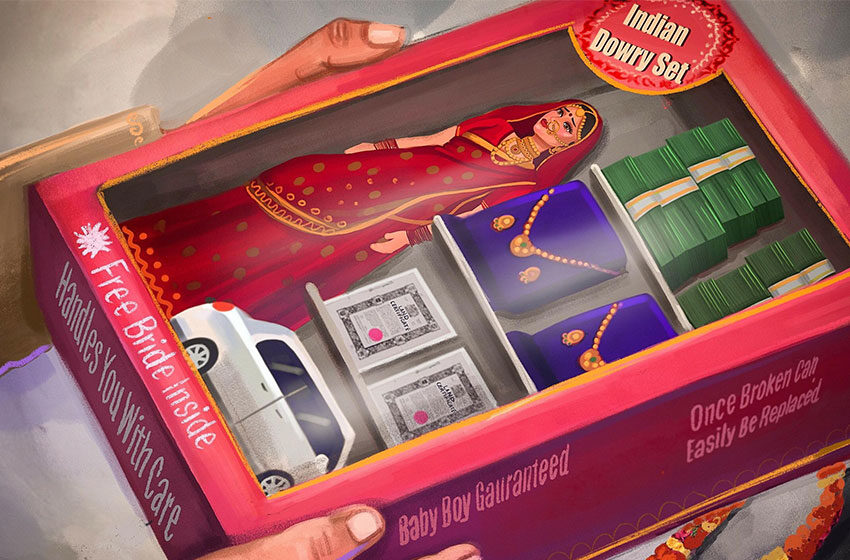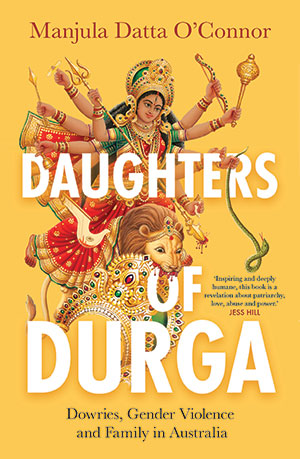Dowry – An ongoing regressive practice among the South Asian community of Australia

Is dowry a tradition or a trap? – A question that goes through most Indian young women who are married off to men working or studying abroad. Besides, before the wedding, the bride’s family and the bride are under the impression that the groom is a self-independent working professional. Hence, young women step into the marriage thinking that they will have a wonderful life; their dreams soon come crashing down when they find themselves trapped in a cycle of physical and mental abuse at the hands of their husbands.
The noteworthy thing is that dowry is a custom of the bride’s family giving gifts to the groom during the wedding. Also, the offer or request of dowry itself is a widespread practice in several cultures; however, the ancient tradition has undergone distortion over the years. Consequently, the custom becomes abusive when the groom and his family begin extorting gifts or money from the bride and her family.
In the South Asian community, dowry abuse is a vital cause of most domestic abuse cases. Also, if the man is not physically abusing the woman, he emotionally abuses them; for instance, if the woman does not comply with her spouse, he threatens to withdraw her Visa sponsorship. Moreover, the constant pressure and stress cause women to experience a high state of anxiety; women who never had any blood pressure problems before suffer high BP, headaches, panic attacks, severe anxiety, depression, and suicide ideations.
One woman’s fight against the dowry system

Manjula Datta O’Connor has been associated with the issue of dowry for many years; in 2008, while working as a psychiatrist in private practice in Melbourne’s CBD, a highly stressed Indian student came to her for a session. Then, the woman expressed her grief and said that her husband and sister-in-law were disparaging her regularly for not giving enough dowry. Also, she told Ms O’Connor that they demanded more cash and wanted to control her income; when she refused to comply with their demands, they verbally abused her.
Following that session, O’Connor encountered several other Indian women coming to her to express their distress. Some of the women were overseas students arriving in Australia who faced similar issues; she recognised that the pattern of abusive behaviour was present in India; however, there was a lack of awareness and knowledge regarding the dowry problem in Australia. Therefore, migrant women started facing increased mental illnesses, wherein some committed suicide, while some Indian migrant men committed murders.
O’Connor noticed that women who came to seek help and respite from abuse were extremely traumatised and under hypervigilance. Also, she found out that some of them hadn’t eaten or slept properly for months; hence, they became fragile and anaemic. Furthermore, a recent national survey by O’Connor indicated that 32 per cent of respondents suffered dowry abuse or knew someone who suffered.

On June 15 2022, she will release her new book, “Daughters of Durga“, which describes whatever she has learned about the dowry phenomenon in detail. While writing the book, she recalled her childhood and the formative years- while growing up in Delhi, her father was loving and kind but was controlling at times. She remembers that she always detested the oppression she faced during her childhood and protested against it in her way. While O’Connor’s father would not allow her mother to work outside the family home, he always wanted Manjula to become a doctor and gave her access to the best education possible.
Later, when O’Connor was studying at Med school, she realised that she did not want to become like her parents as she belongs to the modern generation. Hence, education played a huge role in gradually creating a fearless attitude in her.
She fell in love with – and married – a country boy from Australia, moving from Delhi to her new parents-in-law’s farm in western Victoria. In 2012, she co-founded the Australasian Centre for Human Rights and Health – an NGO set up to campaign against dowry abuse and domestic violence in migrant communities.
The real struggle

In an extreme case of dowry abuse, an incident took place on January 13 2022; Poonam Sharma was murdered in her Mill Park home in Melbourne. Her husband stabbed her multiple times; she escaped her home and ran across her neighbour’s house, bleeding, escaping further injury. Her husband ran after her but fled the scene, leaving Ponnam dead on the neighbour’s doorstep.
39-year-old Poonam’s two daughters were at home at that time: six-year-old Vanessa and ten-year-old Angela. Although, unfortunately, Vanessa succumbed to the stab wounds when the police found her, Angela surprisingly was able to escape.
Dowry abuse-related cases won’t reduce until the authorities take stricter actions against the perpetrators. As of 2021, Victoria and Western Australia have included abuse, threats and violence related to dowry in family violence legislation. Also, the new Victorian laws, aided by heightened media reporting and increased awareness, impacted the new dowry abuse cases. Moreover, the issue branches from the patriarchal structures of the Indian society, which would take a collective and conscientious effort to eliminate. Furthermore, O’Connor has analysed her clinical caseload of South Asian women who have escaped domestic abuse, discovering that 75% had suicidal thoughts, with 17% acting upon these thoughts.





